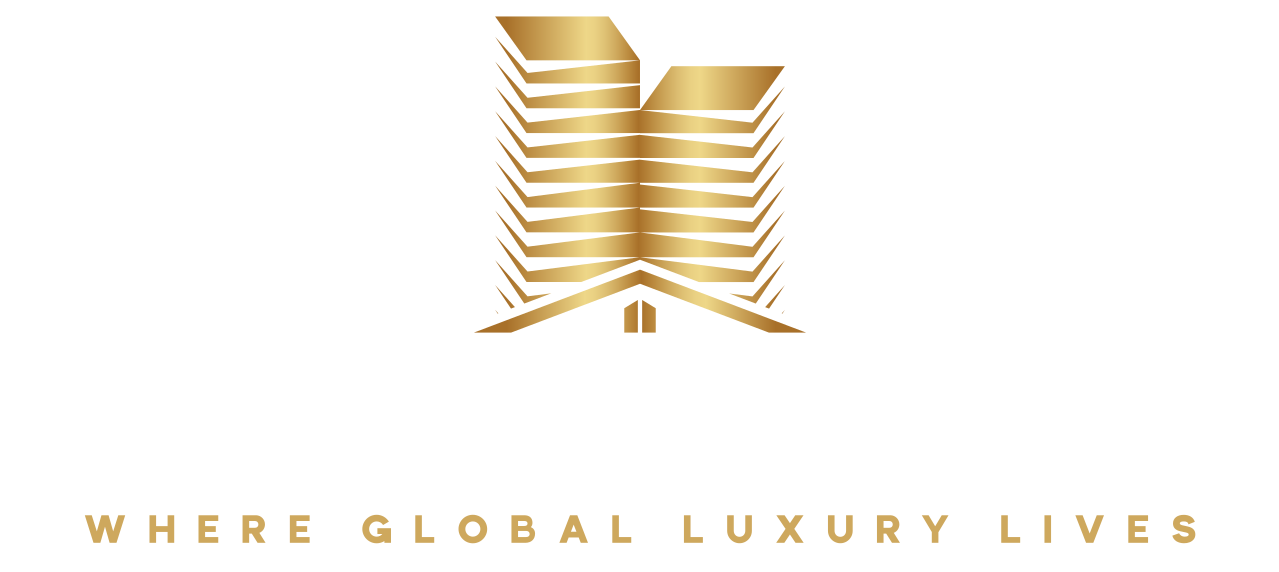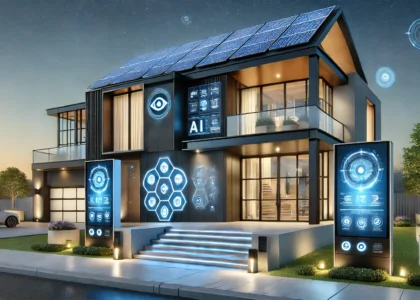Introduction
Urban living is undergoing a transformative shift as cities worldwide embrace smart technologies to enhance the quality of life, economic efficiency, and environmental sustainability.
Smart cities integrate advanced infrastructure, data analytics, and the Internet of Things (IoT) to create interconnected urban environments. This article explores how these innovations are reshaping real estate, particularly in the luxury sector, and examines the implications for property demand and development globally.
The Evolution of Urban Living
Traditional urban development has often grappled with challenges such as congestion, pollution, and inefficient resource management. As populations swell and urban areas expand, these issues have intensified, highlighting the need for more intelligent solutions. Smart cities emerge as a response to these challenges, leveraging technology to create more livable, efficient, and sustainable urban spaces.
Key Components of Smart Cities
- Advanced Infrastructure and Connectivity: Smart cities boast state-of-the-art infrastructure, including high-speed internet, smart grids, and efficient public transportation systems. These elements ensure seamless connectivity and enhance the overall urban experience.
- Sustainable Energy and Environmental Practices: Emphasizing green energy sources, waste reduction, and eco-friendly building practices, smart cities aim to minimize their environmental footprint. Initiatives like carbon-neutral neighborhoods exemplify this commitment. citeturn0news28
- Smart Governance and Citizen Participation: Utilizing digital platforms, smart cities promote transparency and encourage active citizen engagement in decision-making processes, fostering a collaborative urban environment.
- Data Analytics and IoT Integration: By collecting and analyzing data through IoT devices, smart cities optimize services such as traffic management, energy consumption, and public safety, leading to more efficient urban operations.
Impact of Smart Cities on Real Estate
The advent of smart cities has significantly influenced the real estate sector:
- Increased Demand for Tech-Integrated Properties: Mode
- rn buyers prioritize homes equipped with smart technologies, viewing them as essential for contemporary living. Features like automated systems and energy-efficient designs are particularly appealing in the luxury market. citeturn0search1
- Appreciation of Property Values: Properties located within smart cities often experience value appreciation due to enhanced infrastructure and quality of life. For instance, areas like Chakan in Pune have seen increased demand for residential properties following smart city initiatives. citeturn0search3
- Shift in Investment Trends: Investors are increasingly focusing on regions adopting smart city frameworks, anticipating higher returns due to the growing desirability of tech-savvy urban areas. Dubai’s smart city initiatives have notably attracted global investors seeking modern, connected living spaces. citeturn0search4
Luxury Real Estate in the Era of Smart Cities
Luxury real estate is uniquely positioned to benefit from the smart city movement:
- Enhanced Property Features: Integration of smart home technologies, such as automated climate control, security systems, and intelligent appliances, adds significant value to high-end properties, meeting the expectations of discerning buyers. citeturn0search1
- Sustainability as a Selling Point: Eco-friendly features, including energy-efficient designs and sustainable materials, are increasingly sought after in luxury homes, aligning with the broader smart city emphasis on environmental responsibility.
- Exclusive Developments in Smart Cities: Projects like Ellinikon in Athens showcase the fusion of luxury living with smart city principles, offering premium residences within technologically advanced urban settings. citeturn0news25
Global Trends in Smart City Real Estate
As smart city developments gain momentum globally, their impact on the real estate sector continues to evolve, offering unique opportunities and challenges.
- Notable Smart City Projects Worldwide: Cities such as Singapore, Dubai, and Songdo in South Korea serve as benchmarks in smart city development. These urban areas are setting standards with advanced technologies integrated into their infrastructure, transportation, and residential spaces.
- Regional Differences in Implementation: Smart city initiatives vary depending on local priorities and resources. While European cities often focus on sustainability and heritage preservation, Asian cities prioritize cutting-edge technological integration to manage dense populations effectively.
- International Luxury Property Market Impact: With urban transformation at the forefront, smart cities are driving interest in international luxury properties. Investors and buyers are drawn to exclusive homes worldwide, particularly in regions where technology meets elegance.
Challenges in Developing Smart Cities
Despite their promise, smart cities face several obstacles in their development:
- Technological and Infrastructural Hurdles: Building a smart city demands substantial infrastructure upgrades, including reliable connectivity and smart systems integration, which can be cost-intensive and time-consuming.
- Financial and Investment Considerations: Governments and private developers often struggle to balance the high costs of implementing smart technologies with long-term economic returns.
- Balancing Innovation with Preservation: Integrating modern technology into historic cities can be challenging, as it requires preserving cultural heritage while modernizing urban infrastructure.
The Role of Real Estate Professionals
Real estate professionals are pivotal in adapting to the smart city landscape:
- Adapting to Change: As technology reshapes urban spaces, real estate agents and developers must stay informed about emerging trends and smart city initiatives.
- Specialization Opportunities: Professionals can carve out niches by focusing on premium real estate services that cater to the demands of high-tech urban living.
- Collaborating with Tech Experts: Partnering with technology providers can help professionals integrate smart home solutions into their offerings, enhancing their value proposition.
Sustainability and Smart Cities
Sustainability is a cornerstone of smart city planning and its intersection with real estate:
- Environmental Benefits: Smart urban planning reduces carbon footprints through energy-efficient systems, green building designs, and waste management solutions.
- Green Luxury Properties: The demand for eco-friendly homes is rising, especially in the luxury market, where buyers seek properties that reflect their commitment to sustainability.
- Future Prospects: Smart cities encourage the development of carbon-neutral neighborhoods, which align with global environmental goals and enhance property values.
Case Study: Ellinikon Project in Athens, Greece
The Ellinikon project exemplifies the marriage of smart technologies and luxury real estate:
- Overview: Transforming an old airport site, the project introduces sustainable urban living to Athens, with advanced energy systems and smart infrastructure.
- Luxury Real Estate Features: High-end properties in Ellinikon include smart home technology, eco-friendly designs, and access to innovative urban amenities.
- Market Impact: The development has spurred interest in the Athens real estate market, attracting local and international investors seeking exclusive, futuristic homes.
Case Study: West Palm Beach Transformation
West Palm Beach in Florida highlights how smart city concepts can revitalize urban areas:
- Development Strategies: The city has invested heavily in smart traffic systems, eco-friendly public spaces, and modernized utilities.
- Luxury Real Estate Demand: Enhanced urban living conditions have elevated property values, particularly in high-end neighborhoods, appealing to buyers seeking premium real estate services.
Case Study: Dubai’s Smart City Initiatives
Dubai exemplifies a city embracing smart technology at every level:
- Vision and Policies: The government’s commitment to smart city goals has propelled Dubai as a leader in innovation and urban development.
- Real Estate Transformation: Luxury real estate offerings in Dubai include high-end property listings equipped with smart home systems and sustainable features.
- Global Appeal: International luxury properties in Dubai attract investors worldwide, drawn by the city’s futuristic vision and premium real estate services.
Future Outlook for Smart Cities and Real Estate
Looking ahead, smart cities will continue to transform urban living and the real estate sector:
- Predicted Trends: Innovations such as AI-powered urban planning, smart mobility solutions, and personalized home automation will further enhance urban life.
- Technological Advancements: Emerging technologies like blockchain for real estate transactions and virtual property tours will streamline buying and selling processes.
- Long-Term Implications: The integration of technology into urban environments will redefine property values, investment trends, and consumer preferences globally.
Conclusion
The rise of smart cities marks a pivotal moment in the evolution of urban living and real estate. As technology transforms how cities operate, it creates opportunities for sustainable growth, innovation, and luxury living. For real estate professionals, adapting to this shift offers a chance to redefine their services and meet the demands of a tech-savvy clientele. The future of urban living is here, and it’s smart, sustainable, and undeniably exciting.
FAQs
- What defines a smart city?
A smart city integrates advanced technologies to improve infrastructure, sustainability, and quality of life, often using IoT and data analytics. - How do smart cities affect property values?
Smart cities enhance infrastructure and urban living, often leading to increased demand and higher property values. - What are the benefits of smart homes in luxury real estate?
Smart homes offer convenience, energy efficiency, and advanced security, aligning with the expectations of luxury property buyers. - Which cities are leading in smart city development?
Cities like Singapore, Dubai, and Songdo in South Korea are at the forefront of smart city innovation. - How can real estate professionals adapt to the smart city trend?
By staying informed about technological advancements, offering smart home solutions, and collaborating with tech providers to enhance their services.





